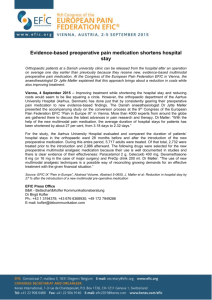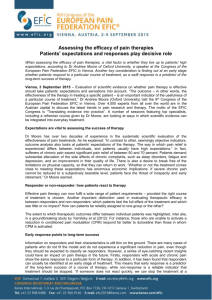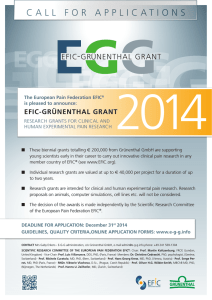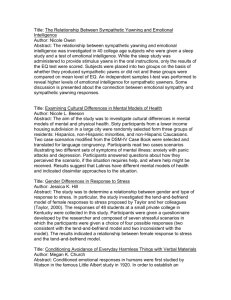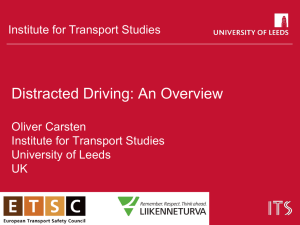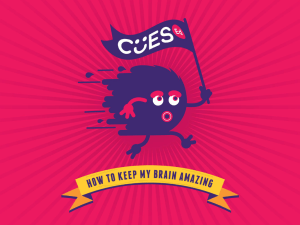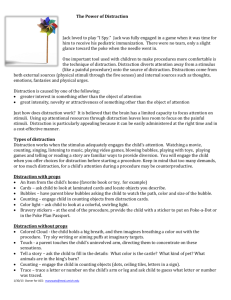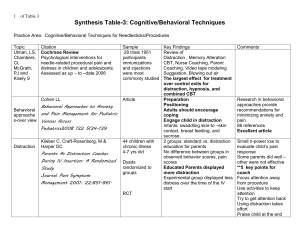Acute stress and distraction reduce perceived pain
advertisement
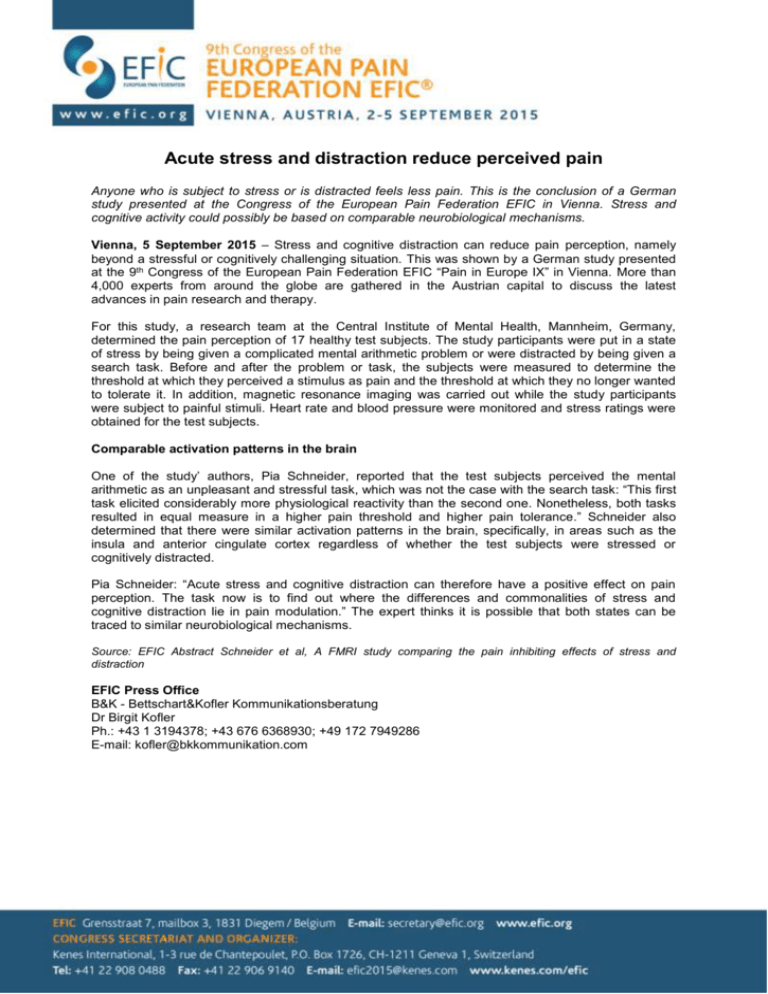
Acute stress and distraction reduce perceived pain Anyone who is subject to stress or is distracted feels less pain. This is the conclusion of a German study presented at the Congress of the European Pain Federation EFIC in Vienna. Stress and cognitive activity could possibly be based on comparable neurobiological mechanisms. Vienna, 5 September 2015 – Stress and cognitive distraction can reduce pain perception, namely beyond a stressful or cognitively challenging situation. This was shown by a German study presented at the 9th Congress of the European Pain Federation EFIC “Pain in Europe IX” in Vienna. More than 4,000 experts from around the globe are gathered in the Austrian capital to discuss the latest advances in pain research and therapy. For this study, a research team at the Central Institute of Mental Health, Mannheim, Germany, determined the pain perception of 17 healthy test subjects. The study participants were put in a state of stress by being given a complicated mental arithmetic problem or were distracted by being given a search task. Before and after the problem or task, the subjects were measured to determine the threshold at which they perceived a stimulus as pain and the threshold at which they no longer wanted to tolerate it. In addition, magnetic resonance imaging was carried out while the study participants were subject to painful stimuli. Heart rate and blood pressure were monitored and stress ratings were obtained for the test subjects. Comparable activation patterns in the brain One of the study’ authors, Pia Schneider, reported that the test subjects perceived the mental arithmetic as an unpleasant and stressful task, which was not the case with the search task: “This first task elicited considerably more physiological reactivity than the second one. Nonetheless, both tasks resulted in equal measure in a higher pain threshold and higher pain tolerance.” Schneider also determined that there were similar activation patterns in the brain, specifically, in areas such as the insula and anterior cingulate cortex regardless of whether the test subjects were stressed or cognitively distracted. Pia Schneider: “Acute stress and cognitive distraction can therefore have a positive effect on pain perception. The task now is to find out where the differences and commonalities of stress and cognitive distraction lie in pain modulation.” The expert thinks it is possible that both states can be traced to similar neurobiological mechanisms. Source: EFIC Abstract Schneider et al, A FMRI study comparing the pain inhibiting effects of stress and distraction EFIC Press Office B&K - Bettschart&Kofler Kommunikationsberatung Dr Birgit Kofler Ph.: +43 1 3194378; +43 676 6368930; +49 172 7949286 E-mail: kofler@bkkommunikation.com
